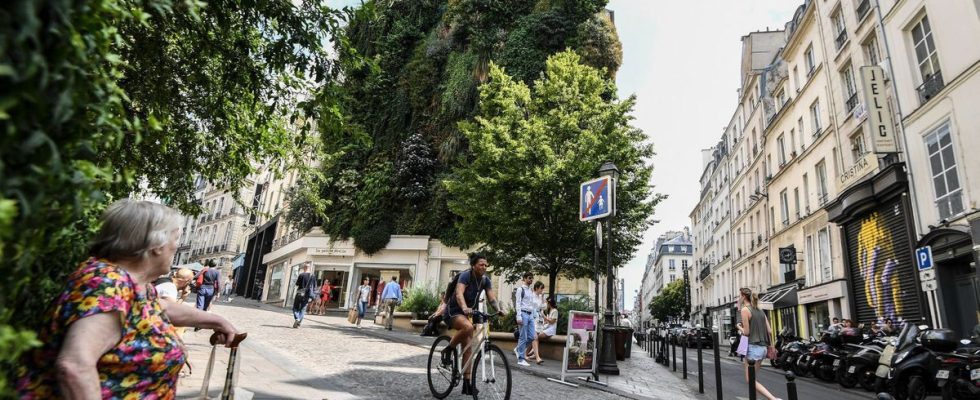Published on
Updated
Reading 1 min.
Ripping up the streets, erecting canvases and shadehouses, painting certain roofs light, growing vegetation: Paris, a particularly mineral and dense city, is trying to adapt to the growing heat waves.
A mission of French elected officials made 85 recommendations in this regard. Because according to forecasts, “Paris could experience heat waves on average 34 days a year by 2080, compared to 14 days a year in the 2010s“, and the average number of tropical nights could increase from 5 to 35 per year, write the elected officials in a report that AFP was able to consult on Tuesday.
In a dense, urbanized city”more than 80%“, materials (stone, concrete, asphalt, zinc) and human activities “generate an additional increase in temperature of up to 8 or 10°C compared to its surroundings, especially at night“, underlines the mission “Paris at 50°C”, completed Thursday.
Elected officials recommend generalizing the “debiting of parking and bicycle spaces“, replaced by grass or “grass cobblestones“, and to vegetate the “most exposed facades“in the heat with”low maintenance climbing plants, planted in the ground“.
They also adviseto shade the large squares and avenues” with “vegetated pergolas and shadehouses“, arcades or even “large-scale works on certain heavily mineralized squares, on the model of the parasols of Medina“.
On the existing building, the mission, which sometimes scratches the balance sheet of the socialist mayor Anne Hidalgo, recommends the development “communal roof terracess “including water collectors, revegetation”resilient” and renewable energy production.
When this is not possible, she asks to paint the roofs “flat and non-heritage” with “a clear coating“.
While swimming in the Seine must be made possible after the 2024 Olympic Games, Parisian elected officials want to see these places of refreshment multiply.
These elected officials from all political groups also ask to “prepare for the possibility of a heat dome in Paris” with “refuge spaces“to spend the night there, such as underground passages, car parks or disused metro stations.
These recommendations could be integrated into two texts currently being revised by the left-wing executive, the local urban plan and the Climate Plan, which must be presented to the municipal council in June and July.
